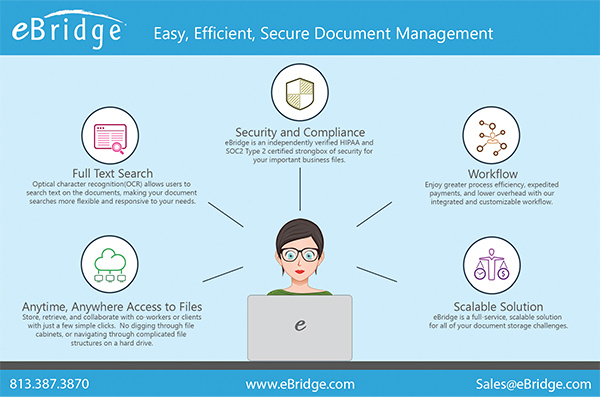
How to Up Your Success in Hiring
5 ways to attract better-suited candidates and interview more efficiently.
By Linda Pappajohn
 Finding employees who have the skills, experience, and traits you need can be very challenging today. And, a 3.8 percent national unemployment rate certainly doesn’t work in your favor. Finding employees who have the skills, experience, and traits you need can be very challenging today. And, a 3.8 percent national unemployment rate certainly doesn’t work in your favor.
Despite a low pool of qualified people to draw from, don’t be too quick to give up and, in desperation, hire just “any warm body.” Thinking you can train the warm body and learn to live with their shortcomings and quirks rarely works out in the long run. You can end up spending frustrating hours either trying to fix the new hire or convincing other employees the new hire isn’t so bad.
Following are some tips to help you attract better-suited candidates and ways to interview to make sure you get good insight into how the candidate will function in the job.
 Write a Detailed Job Description Write a Detailed Job Description
The act of writing a good job description will help you understand and convey exactly what you’re looking for. Along with skills and experience, include the behavior traits of the person whom you believe will succeed in that position.
When writing the job posting, up your chances of a good fit responding to your ad by listing the critical key components from the job description and by describing your work environment. Tell applicants about your culture, your company’s values (providing you have them and live by them, of course), and any special perks, such as flexible hours or work-from-home time schedules. If you’re not quite sure what makes your company attractive to employees, ask your current employees what was enticing to them.
Use words in your job posting that will resonant with a good-fit candidate. For example, a high-energy, fast-paced environment would be attractive to someone who likes a rapidly changing, growing workplace with lots of opportunities to advance, but it could be very uncomfortable for someone who has settled into their career and likes to have known, tried-and-true procedures and processes in place that rarely change.
 Put in Place an Employee Referral Bonus Program Put in Place an Employee Referral Bonus Program
Whenever you have an opening, let your employees know about it. Your current employees know what it is like to work at your company. Assuming it’s a place they would recommend to their acquaintances, tap into their networks by offering a substantial recruiting bonus. Rah-rah the program to employees. The program could offer $3,500 to $5,000 for each employee you hire whom a current employee brought to your attention. This is more cost effective than paying today’s average of 20 percent of the annual salary to a recruiting agency. Employees’ LinkedIn, Twitter, and Facebook accounts can be great tools to recruit passive candidates who may not be actively searching job boards.
 Screen Your Applicants Thoroughly Screen Your Applicants Thoroughly
Screen all resumes and cover letters against your list of must-haves like experience, skills, behavior characteristics, and education. For the applicants who appear to be closely matched to the position, set up a telephone pre-screening call. This allows you to ask questions to get clarification on some items on their resumes, and to find out why they are looking or what about your open position appeared to be attractive to them. Asking “What would have to be present in a new job/company for you to make a switch?” gives you a chance at the initial stage to compare what your company has to offer against what they are looking for.
On a phone screening, be sure to ask about their salary expectations. (It is against the law in some states to ask about a candidate’s salary history or current salary during the interviewing and hiring process.) Be prepared to give the candidates a salary range if asked or if they are hesitant to provide you a number. There is nothing worse than finding out at the end of the process, when you make an offer, that it is thousands of dollars less than the candidate was expecting.
Advertisement. Click on image to visit advertiser's website. Story continues below.

|
 Prepare Nuanced Interview Questions Prepare Nuanced Interview Questions
Prepare your interview questions in advance and make sure anyone conducting interviews sticks to these questions. With myriad how-to-prepare-for-an-interview advice available online today, job seekers are very savvy about interview questions they will be asked. So, avoid some of the standard questions: “What are your strengths and weaknesses?” and “Tell me why I should hire you over the other candidates.” Instead, focus on behavioral interview questions. After all, what you really want to find out is how the candidate behaved in prior work situations.
It is very likely that how someone behaved in one company is how they will behave in yours. Behavioral interview questions will provide you with:
- Real life past examples
- Stories displaying the candidate’s skills and work behaviors
- A sense of the candidate’s level of motivation
Your behavioral interview questions should be relevant to the job, its duties, and the skills you need. (Hint: If you have employees who perform this job well, list their work behaviors, skills, and traits.) Interviewers should ask the same questions of each candidate. This allows them to compare applicants across interviews.
Examples of behavioral interview questions could include:
- How do you think your current boss would describe you? What would he/she say are your greatest strengths? What areas of training would he/she say you would benefit from the most?
- What aspects of your current (or previous) position(s) did you enjoy the most? What did you find to be the most professionally challenging?
- Tell me about a time when you were working hard to complete a task and you were asked to leave that task before completing it and start a different task.
- Tell me about a time you went out of your way to please a client or a manager.
- What is the most stressful work situation you’ve handled, and what was the outcome?
- What are your three most important work-related core values? Give me an example of situations in which you demonstrated each value at work.
Toss in a couple odd interview questions. Just be sure the interviewers know what these odd questions are trying to garner from the candidates’ answers. Weird questions can give you some insight into the candidate’s character. For example, if your company has an upbeat, fun-loving, light-hearted culture, asking candidates a couple of unexpected questions could give you a glimpse into whether they have a sense of humor and don’t take themselves too seriously.
 Have a Professional, Efficient Interview Process in Place Have a Professional, Efficient Interview Process in Place
Make sure candidates are made to feel comfortable, come away with a good impression of your company, and gain a sense of your corporate culture. You can do this by:
- Not making the candidates wait when they show up for the interview. Offering them a beverage, and putting them at ease with small talk when you first sit down.
- Having several people interview the candidate.
- Inviting your final top candidate(s) to have breakfast, lunch, or an after-work get-together with some of your more personable employees who would be the candidate’s peers. This is a casual, ask-us-anything-you-want meeting. (Have separate meetings for each candidate; don’t put competing candidates at the same get together!)
Time is of the essence! Make sure all interviewers know what your hiring process encompasses and your timelines for the position. Interviewed candidates will want to know what they can expect as your next step. Keep the recruiting process moving along quickly so you don’t lose a good candidate. To do this, set up a schedule of your hiring process, show where each candidate stands in the process, and make sure everyone involved sticks to it.
Once you have decided on a candidate and before you make them an offer, check references—preferably from former supervisors/managers—and verify prior work history (although you may not be able to verify current position at this time). A written offer letter to the candidate should state it is contingent on successfully passing a background check to verify other information that is relevant to the position.
If for some reason your hiring process is taking longer than you had expected (and what you told candidates to expect), do a check-in email or call with the candidates you’ve interviewed. This courtesy lets them know you are still interested, where you are in the process, and when you may have a decision. It is also a good opportunity to find out if they are still interested in your company.
 Linda A. Pappajohn is a principal and director of consulting services at Santora CPA Group in Newark, Delaware. She started the HR consulting services niche and just celebrated her 30th year with the firm. Some of the areas for which Linda provides HR consulting services are HR advice on all types of employee situations, employee policy handbooks, payroll and benefits administration, recruiting, training, job descriptions, and salary surveys. Linda A. Pappajohn is a principal and director of consulting services at Santora CPA Group in Newark, Delaware. She started the HR consulting services niche and just celebrated her 30th year with the firm. Some of the areas for which Linda provides HR consulting services are HR advice on all types of employee situations, employee policy handbooks, payroll and benefits administration, recruiting, training, job descriptions, and salary surveys.

|

 Finding employees who have the skills, experience, and traits you need can be very challenging today. And, a 3.8 percent national unemployment rate certainly doesn’t work in your favor.
Finding employees who have the skills, experience, and traits you need can be very challenging today. And, a 3.8 percent national unemployment rate certainly doesn’t work in your favor.  Write a Detailed Job Description
Write a Detailed Job Description Put in Place an Employee Referral Bonus Program
Put in Place an Employee Referral Bonus Program Screen Your Applicants Thoroughly
Screen Your Applicants Thoroughly 
 Prepare Nuanced Interview Questions
Prepare Nuanced Interview Questions Have a Professional, Efficient Interview Process in Place
Have a Professional, Efficient Interview Process in Place Linda A. Pappajohn is a principal and director of consulting services at Santora CPA Group in Newark, Delaware. She started the HR consulting services niche and just celebrated her 30th year with the firm. Some of the areas for which Linda provides HR consulting services are HR advice on all types of employee situations, employee policy handbooks, payroll and benefits administration, recruiting, training, job descriptions, and salary surveys.
Linda A. Pappajohn is a principal and director of consulting services at Santora CPA Group in Newark, Delaware. She started the HR consulting services niche and just celebrated her 30th year with the firm. Some of the areas for which Linda provides HR consulting services are HR advice on all types of employee situations, employee policy handbooks, payroll and benefits administration, recruiting, training, job descriptions, and salary surveys.